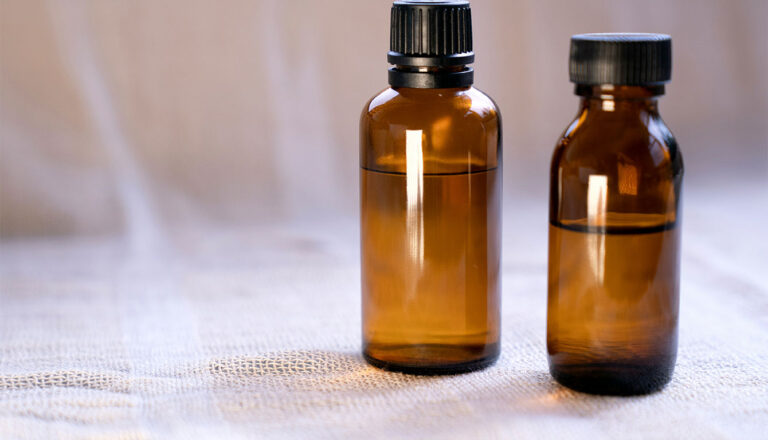In professional therapy, the right product can make all the difference. Oils, lotions, creams, and gels are essential tools, each offering unique benefits. In the UK, preferences often lean towards natural and hypoallergenic options, ensuring comfort and safety for clients.
When selecting products, factors like skin type, allergies, and scent preferences play a crucial role. Brands such as Sacred Earth Botanicals, Biotone, and Naqi are popular choices, known for their quality and effectiveness. This guide explores the diverse range of options available, helping you make informed decisions.
Key Takeaways
- Oils are a vital part of professional therapy, enhancing the overall experience.
- Lotions, creams, and gels offer diverse benefits, catering to different needs.
- UK preferences often focus on natural and hypoallergenic products.
- Skin type, allergies, and scent preferences are key considerations.
- Brands like Sacred Earth Botanicals, Biotone, and Naqi are trusted choices.
Introduction to Massage Oils
Finding the perfect product enhances both comfort and results. Oils play a vital role in creating a smooth glide during sessions, ensuring a relaxing and therapeutic experience. They also help reduce friction, making movements more fluid and effective.
In the UK, aromatherapy blends are gaining popularity. These blends combine essential oils with carrier oils, offering both physical and emotional benefits. Many clients appreciate the calming scents and added relaxation they provide.
Brands like Sacred Earth Botanicals and Biotone are trusted for their high-quality products. Sacred Earth Botanicals is known for its hypo-allergenic creams, while Biotone offers gels that are both effective and easy to apply. These options cater to diverse client needs.
Clients often prefer non-greasy options, such as fractionated coconut oil. It absorbs quickly, leaving the skin soft without a sticky residue. This makes it a favourite among both therapists and clients.
Another important factor is linen compatibility. Some natural oils can pose fire risks if not handled properly. Always ensure the chosen product is safe for use with linens and other materials in the treatment room.
Types of Massage Oils Used by Therapists
Therapists rely on a variety of oils to enhance their sessions. These products are carefully chosen to suit different needs, ensuring a smooth and effective experience. From base oils to aromatic blends, each type offers unique benefits.
Carrier Oils
Carrier oils form the foundation of many blends. They dilute essential oils and provide a smooth glide during sessions. Popular choices include sweet almond, grapeseed, and fractionated coconut oil.
Fractionated coconut oil is particularly favoured for its light texture. It’s odourless, non-staining, and absorbs quickly, making it a practical choice for both therapists and clients. For those with sensitive skin, jojoba oil is an excellent option due to its similarity to the skin’s natural sebum.
Essential Oils
Essential oils add therapeutic and aromatic benefits to sessions. Lavender is widely used for its calming properties, while peppermint is ideal for pain relief and invigoration. However, these oils must be diluted properly to avoid skin irritation.
Natural oils often retain more therapeutic properties, but they may require extra care with linens. Refined oils, on the other hand, are more practical for everyday use. Choosing the right balance between therapeutic benefits and practicality is key.
| Type | Benefits | Popular Choices |
|---|---|---|
| Carrier Oils | Smooth glide, hypoallergenic, absorbs quickly | Sweet almond, grapeseed, fractionated coconut |
| Essential Oils | Aromatic, therapeutic, enhances relaxation | Lavender, peppermint, eucalyptus |
For more insights on selecting the best oils for specific treatments, explore our guide on Indian head massage benefits and uses.
Benefits of Using the Right Massage Oil
Selecting the appropriate product can significantly enhance the therapeutic experience. The right blend not only improves the session’s effectiveness but also offers numerous health benefits. From nourishing the skin to aiding muscle relaxation, the advantages are vast and well-documented.
Skin Health
Hydration is a key benefit of high-quality blends. Products like grapeseed oil are rich in vitamin E, which helps maintain the skin’s natural moisture barrier. A 2018 study highlighted that carrier oils, including sweet almond and jojoba, are effective in soothing and nourishing the skin.
These oils are particularly beneficial for those with dry or sensitive skin. They absorb quickly, leaving the skin soft and hydrated without a greasy residue. This makes them a popular choice in the UK, where natural and hypoallergenic options are preferred.
Muscle Relaxation
Essential oils like rosemary and peppermint are known for their ability to reduce pain and promote muscle relaxation. Research from 2016 found that these oils, when combined with carrier oils, can significantly ease sore muscles and joints.
For athletes, these blends are particularly useful. Sports massage benefits include increased circulation and the breakdown of scar tissue, aiding faster recovery. This makes them an essential part of any sports therapy routine.
In deep tissue modalities, products with less slip, such as Bon Vital Organica cream, are often preferred. These allow therapists to apply the necessary pressure without compromising the treatment’s effectiveness.
For more insights on the best blends for specific needs, explore our guide on choosing the right massage oil.
What Do Massage Therapists Use for Oil: Key Considerations
Understanding client needs is essential when picking the perfect blend. Every individual has unique preferences and requirements, making it crucial to consider factors like skin type, allergies, and scent preferences. These elements ensure a safe and enjoyable experience for clients.
Skin Type and Allergies
Different skin types react differently to products. For sensitive skin, hypo-allergenic options like jojoba or fractionated coconut oil are ideal. These blends are gentle and less likely to cause irritation. Always recommend a patch test before full application to avoid adverse reactions.
Nut-based oils, such as sweet almond, can pose risks for clients with nut allergies. Synthetic additives in some products may also trigger side effects. Consulting an aromatherapist can help identify safer alternatives tailored to individual needs.
Scent Preferences
Clients often have strong opinions about scents. While some enjoy the calming aroma of essential oils like lavender, others prefer unscented bases. Products like Soothing Touch Versa Creme cater to this demand, offering a neutral option for those sensitive to fragrances.
The NHS emphasises the importance of safety checks when using essential oils. Proper regulation ensures these products are safe and effective. Always verify the quality and source of any blend to avoid potential side effects.
How to Choose the Best Massage Oil for Your Needs
Selecting the ideal blend for your sessions requires careful consideration of several factors. From quality and ingredients to cost and shelf life, each aspect plays a crucial role in ensuring a satisfying experience. Here’s a detailed guide to help you make an informed decision.
Quality and Purity
When it comes to quality, always opt for cold-pressed and unrefined options. These retain more of their natural properties, making them ideal for therapeutic purposes. Brands like Sacred Earth Botanicals are renowned for their high-quality, cruelty-free certifications.
Checking the ingredients list is equally important. Avoid products with synthetic additives or preservatives, as these can cause skin irritation. Organic and hypo-allergenic blends are safer choices, especially for sensitive skin.
Cost and Shelf Life
While cost is a significant factor, it’s essential to compare prices per ounce rather than the total package. Bulk purchases from suppliers like Pure Pro can save money in the long run without compromising on quality.
Shelf life is another critical consideration. Some oils, like avocado, oxidise faster than others. Fractionated coconut oil, on the other hand, has a longer shelf life and remains stable over time. Always store products in a cool, dark place to extend their usability.
| Factor | Details | Recommendations |
|---|---|---|
| Quality | Cold-pressed, unrefined, cruelty-free | Sacred Earth Botanicals |
| Cost | Price per ounce, bulk savings | Pure Pro |
| Shelf Life | Oxidation risks, storage tips | Fractionated coconut oil |
For those in the UK, brands like Naqi offer dermatologically tested lotions that are both effective and affordable. Prioritising these factors ensures you select the best blend for your specific needs.
Conclusion
Choosing the right blend can elevate the therapeutic experience for both clients and professionals. Fractionated coconut oil stands out for its versatility, while jojoba is ideal for sensitive skin. Personalised choices based on client needs and modality, such as sports or relaxation, ensure optimal results.
Consulting with experienced massage therapists can provide tailored advice, enhancing the benefits of each session. Prioritising quality over trends is essential, with brands like Sacred Earth Botanicals leading the way in reputation and reliability.
By focusing on individual preferences and high-quality oils used, you can create a truly transformative experience. Whether for sports recovery or relaxation, the right choice makes all the difference.
FAQ
What are the most common carrier oils used in massage therapy?
Popular carrier oils include sweet almond oil, jojoba oil, coconut oil, and olive oil. These are often chosen for their light texture and nourishing properties.
Can essential oils be applied directly to the skin during a massage?
No, essential oils should always be diluted with a carrier oil to avoid skin irritation or adverse reactions. Aromatherapy blends are carefully mixed for safety and effectiveness.
How do massage oils benefit the skin?
High-quality oils hydrate, soothe, and improve skin elasticity. Ingredients like vitamin E and fatty acids help maintain a healthy complexion.
What should I consider if I have sensitive skin?
Opt for hypoallergenic oils like jojoba or grapeseed oil. Always patch-test new products to ensure they suit your skin type.
Are there specific oils recommended for deep tissue massage?
Yes, thicker oils like olive oil or avocado oil are ideal for deep tissue work. They provide better glide and deeper penetration.
How do I choose the right scent for an aromatherapy massage?
Consider your preferences and desired effects. Lavender promotes relaxation, while eucalyptus is invigorating. Discuss options with your therapist for a personalised experience.
What factors affect the shelf life of massage oils?
Exposure to light, heat, and air can reduce shelf life. Store oils in a cool, dark place and check for rancidity before use.
Are there any side effects of using massage oils?
Some individuals may experience allergic reactions or skin sensitivity. Always inform your therapist of any allergies or skin conditions beforehand.





